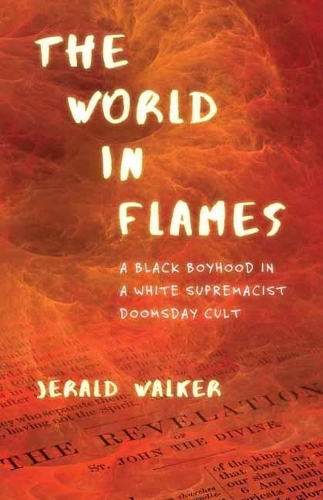
The World in Flames: A Black Boyhood in a White Supremacist Doomsday Cult
(Paperback)
Available Formats
Publishing Details
The World in Flames: A Black Boyhood in a White Supremacist Doomsday Cult
By (Author) Jerald Walker
Beacon Press
Beacon Press
1st September 2018
31st August 2017
United States
Classifications
General
Non Fiction
Other Nonconformist and Evangelical Churches
Ethnic studies / Ethnicity
289
Physical Properties
Paperback
208
Width 138mm, Height 208mm, Spine 15mm
187g
Description
A memoir of growing up with blind, African-American parents in a segregated cult preaching the imminent end of the world When The World in Flames begins, in 1970, Jerry Walker is six years old. His consciousness revolves around being a member of a church whose beliefs he finds not only confusing but terrifying. Composed of a hodgepodge of requirements and restrictions (including a prohibition against doctors and hospitals), the underpinning tenet of Herbert W. Armstrong's Worldwide Church of God was that its members were divinely chosen and all others would soon perish in rivers of flames. The substantial membership was ruled by fear, intimidation, and threats. Anyone who dared leave the church would endure hardship for the remainder of this life and eternal suffering in the next. The next life, according to Armstrong, would arrive in 1975, three years after the start of the Great Tribulation. Jerry would be eleven years old. Jerry's parents were particularly vulnerable to the promise of relief from the world's hardships. When they joined the church, in 1960, they were living in a two-room apartment in a dangerous Chicago housing project with the first four of their seven children, and, most significantly, they both were blind, having lost their sight to childhood accidents. They took comfort in the belief that they had been chosen for a special afterlife, even if it meant following a religion with a white supremacist ideology and dutifully sending tithes to Armstrong, whose church boasted more than 100,000 members and more than $80 million in annual revenues at its height. When the prophecy of the 1972 Great Tribulation does not materialize, Jerry is considerably less disappointed than relieved. When the 1975 end-time prophecy also fails, he finally begins to question his faith and imagine the possibility of choosing a destiny of his own.
Reviews
The key to the memoirs cumulative power is Walkers narrative command; the rite of passage is rockier than most, making the redemption well-earned.
Kirkus Reviews, starred review
Jerald Walker has a remarkable story to tell, and he tells it with a wealth of grace and intelligence at his command.
Vivian Gornick
Author Bio
Jerald Walker is a professor of creative writing at Emerson College. His writing has appeared in publications such as the Harvard Review, Mother Jones, the Iowa Review; the Missouri Review; the Oxford American; the Chronicle of Higher Education, and Creative Nonfiction, as well as four times in Best American Essays. He is the author of Street Shadows- A Memoir of Race, Rebellion, and Redemption, which won the PEN New England/L. L. Winship Award for Nonfiction.
